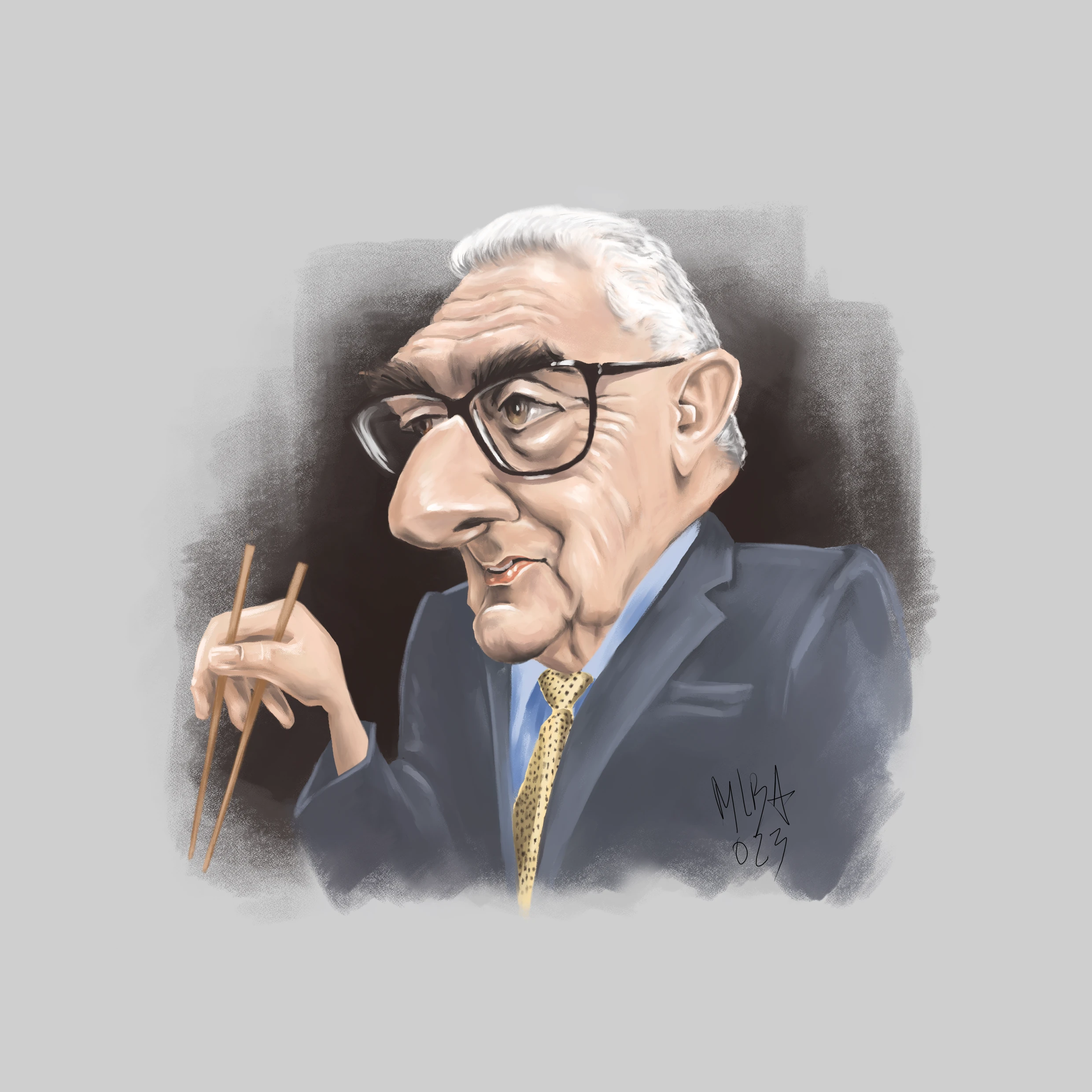
Henry Kissinger
The diplomat is a figure of immense historical significance, known for his roles as a diplomat, political strategist, and scholar. Born in Germany in 1923, he fled the Nazi regime with his family and eventually settled in the United States. Throughout his long and multifaceted career, Kissinger left an indelible mark on international relations and foreign policy.
Kissinger’s most notable tenure was as the U.S. National Security Advisor and later Secretary of State during the administrations of Presidents Richard Nixon and Gerald Ford. His pragmatic approach to foreign policy and his efforts to normalize relations with China and establish détente with the Soviet Union were pivotal in shaping the global landscape during the Cold War era. The policy of realpolitik that he championed aimed to pursue American interests through calculated interactions with other nations, often bypassing ideological considerations.
One of Kissinger’s most significant achievements was his involvement in the negotiation of the Paris Peace Accords, which effectively ended U.S. involvement in the Vietnam War. While these negotiations were ultimately criticized for not fully addressing the complexities of the conflict, they marked a turning point in American foreign policy and highlighted Kissinger’s role as a shrewd negotiator.
However, Kissinger’s legacy is not without controversy. His association with covert operations and questionable ethical decisions, such as the U.S. bombing campaign in Cambodia and the support for authoritarian regimes in Latin America, have sparked criticism and debate. Critics argue that these actions undermined human rights and democracy in pursuit of short-term geopolitical gains. The Chilean coup of 1973, which led to the overthrow of democratically elected President Salvador Allende and the rise of General Augusto Pinochet, is a particularly contentious episode tied to Kissinger’s policies.
Kissinger’s geopolitical philosophy and actions have also faced scrutiny for their perceived disregard for the sovereignty of other nations. The secret bombing of Cambodia and the heavy-handed U.S. involvement in other countries’ internal affairs led to accusations of imperialism and interference. These actions often overshadowed his efforts to promote stability and balance of power on the global stage.
On the positive side, Kissinger’s intellectual contributions cannot be ignored. Before his government service, he was a prominent academic and author, delving into the intricacies of international relations and diplomacy. His books, including “Diplomacy” and “World Order,” provided valuable insights into the history and complexities of international politics, solidifying his reputation as a scholar-practitioner.
Beyond his policy decisions, Kissinger’s influence on subsequent generations of diplomats and policymakers is undeniable. His legacy continues to be a subject of study and debate, with opinions on his impact varying widely. Some view him as a masterful strategist who helped navigate the complexities of the Cold War and reshape global power dynamics, while others criticize his methods as morally compromising and undermining the principles of democracy and human rights.
In his later years, Kissinger remained an active participant in discussions about international relations, often providing his perspective on contemporary issues. He was sought after for his insights on U.S. foreign policy, global conflicts, and the changing dynamics of the international arena.
In conclusion, Henry Kissinger’s legacy is a complex tapestry of accomplishments, controversies, and intellectual contributions. His pragmatic approach to diplomacy and his efforts to reshape global power dynamics during the Cold War era have left an indelible mark on the course of international relations. While celebrated for his diplomatic achievements, he remains a polarizing figure due to his involvement in controversial policies and actions that raised questions about ethics and human rights. Ultimately, the assessment of Henry Kissinger’s legacy rests on a nuanced understanding of his multifaceted impact on the world stage.
